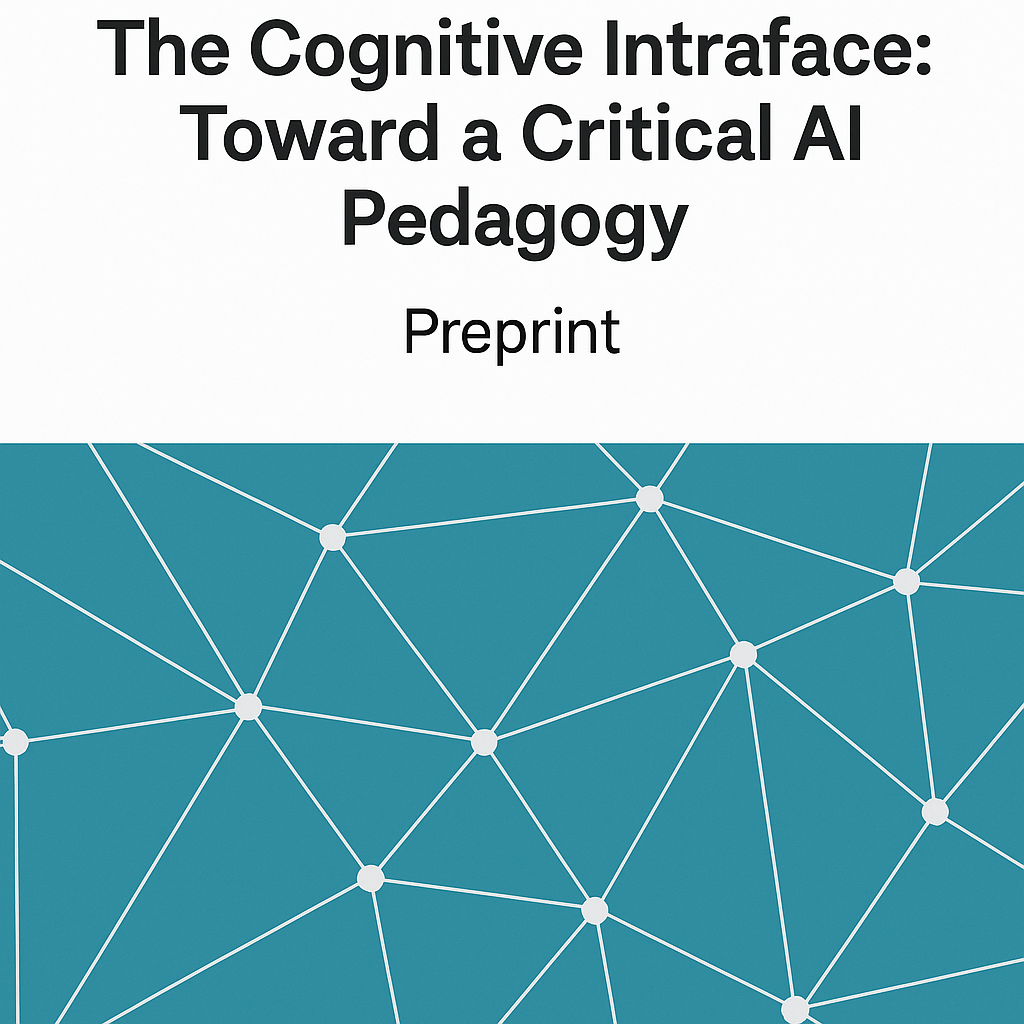The Cognitive Intraface: Toward a Critical AI Pedagogy

By J. Owen Matson, Ph.D.
Below is the abstract of my recent article, “The Cognitive Intraface: Toward a Critical AI Pedagogy,” currently under review at Educational Philosophy and Theory. You can download the full preprint here.
This paper redefines learning within AI–human systems by extending N. Katherine Hayles’ model of cognition as “the process that interprets information in contexts that connect it to meaning.” While Hayles relocates cognition beyond the conscious human subject—encompassing technical, biological, and nonconscious agents—her framework remains underdeveloped within educational theory. This paper advances her insights by modeling how cognition unfolds relationally in AI–human interaction and by framing this unfolding not only as epistemic activity, but as a site of pedagogical and political consequence.
To this end, it introduces the concept of the cognitive intraface: a recursive zone of co-interpretation between asymmetric agents whose difference—structural, epistemic, and ontological—is not a flaw, but the generative condition of meaning-making. Drawing on Mikhail Bakhtin’s account of dialogism, the paper frames meaning as emerging not from alignment, but from friction—where voices, systems, and logics confront each other across irreducible gaps. The intraface becomes, in Stuart Hall’s sense, a site of articulation: a contingent alignment where interpretive tension enables epistemic reconfiguration. Through this recursive engagement across difference, platform structures, institutional logics, and normative assumptions become sites of potential disruption—opened to critique and redirection not through legibility, but through epistemic friction.
By reframing AI not as a delivery mechanism but as a differently structured participant in systems of meaning-making, the paper sketches the foundations of a critical AI pedagogy—one that foregrounds asymmetry, interpretive encounter, and the recursive negotiation of meaning across cognitive difference.